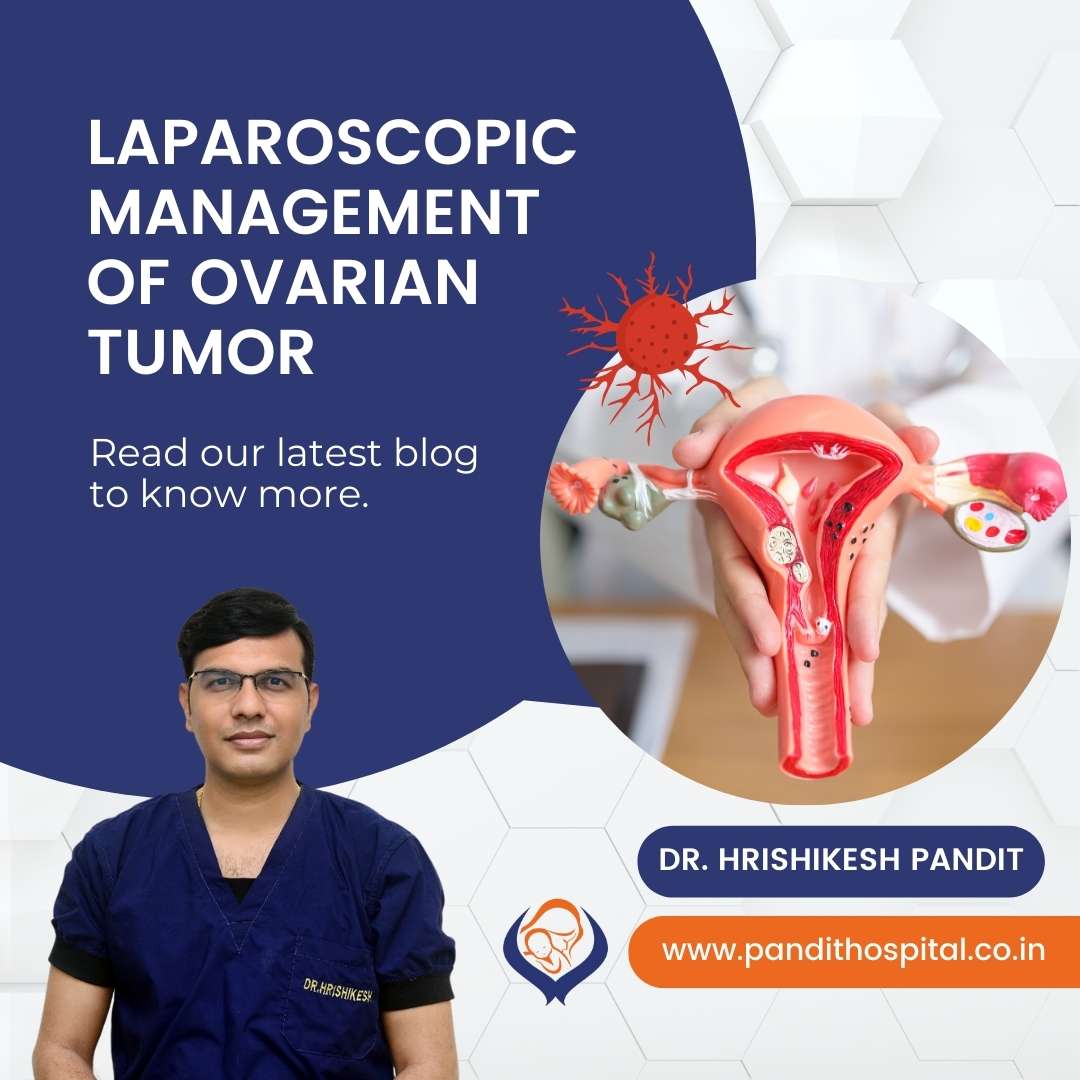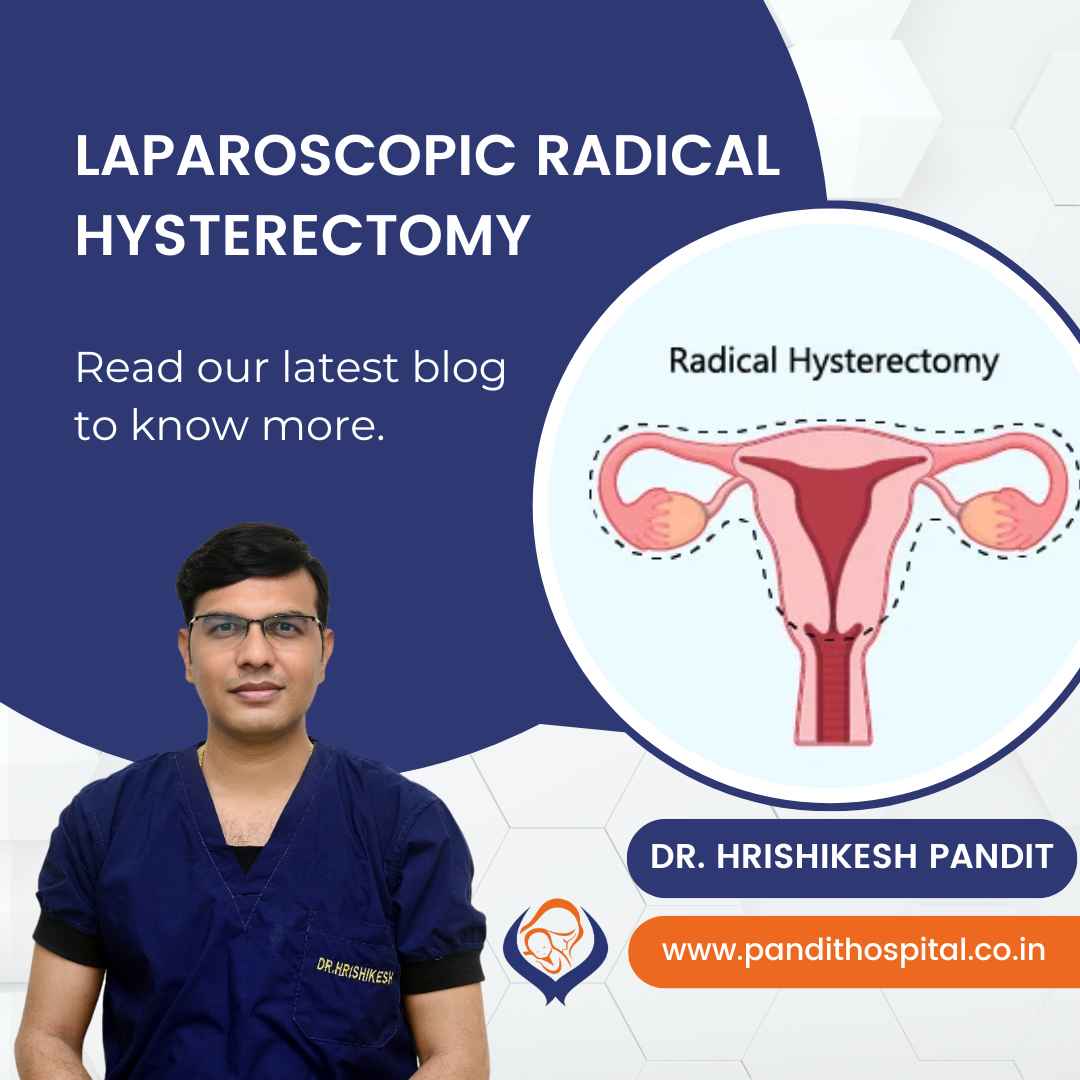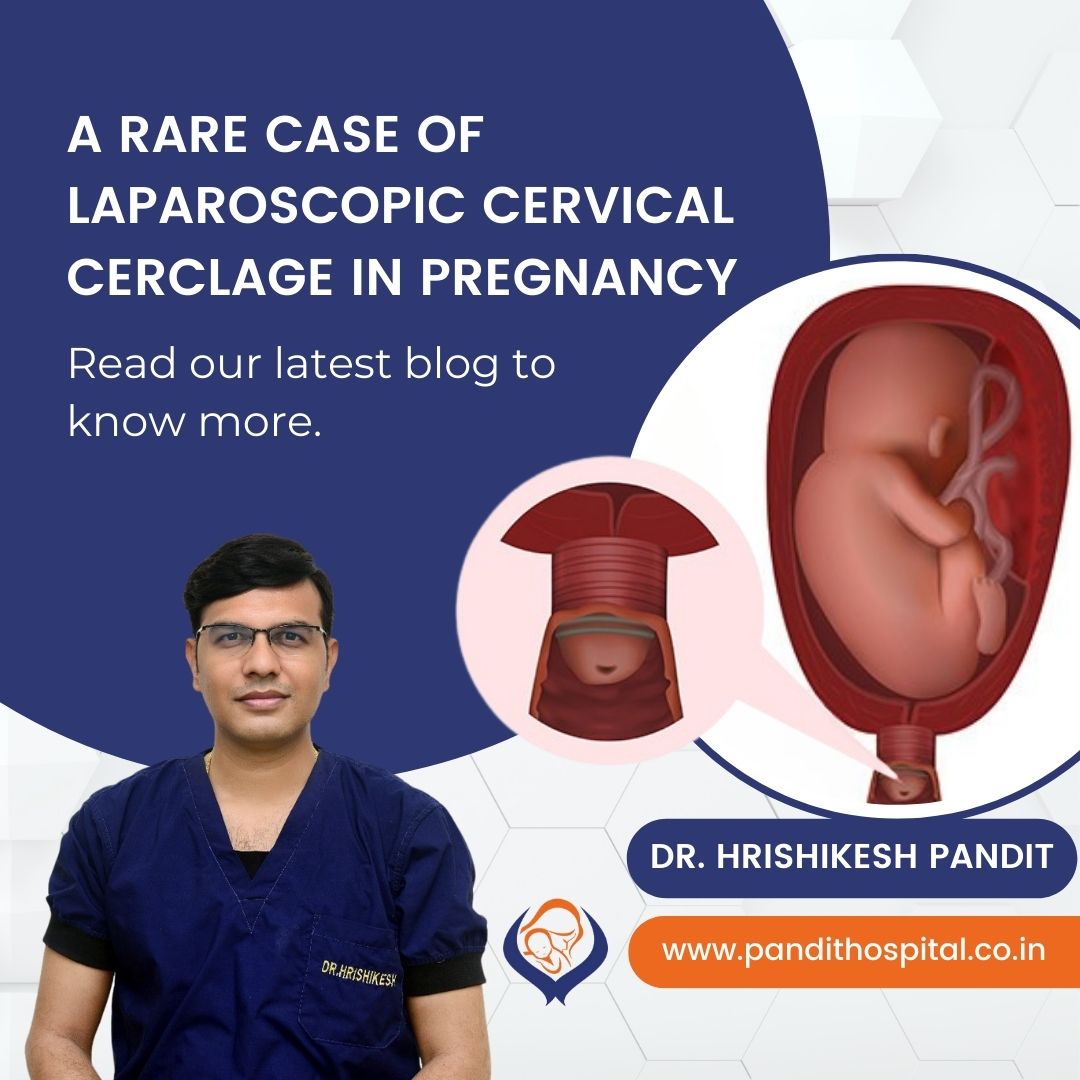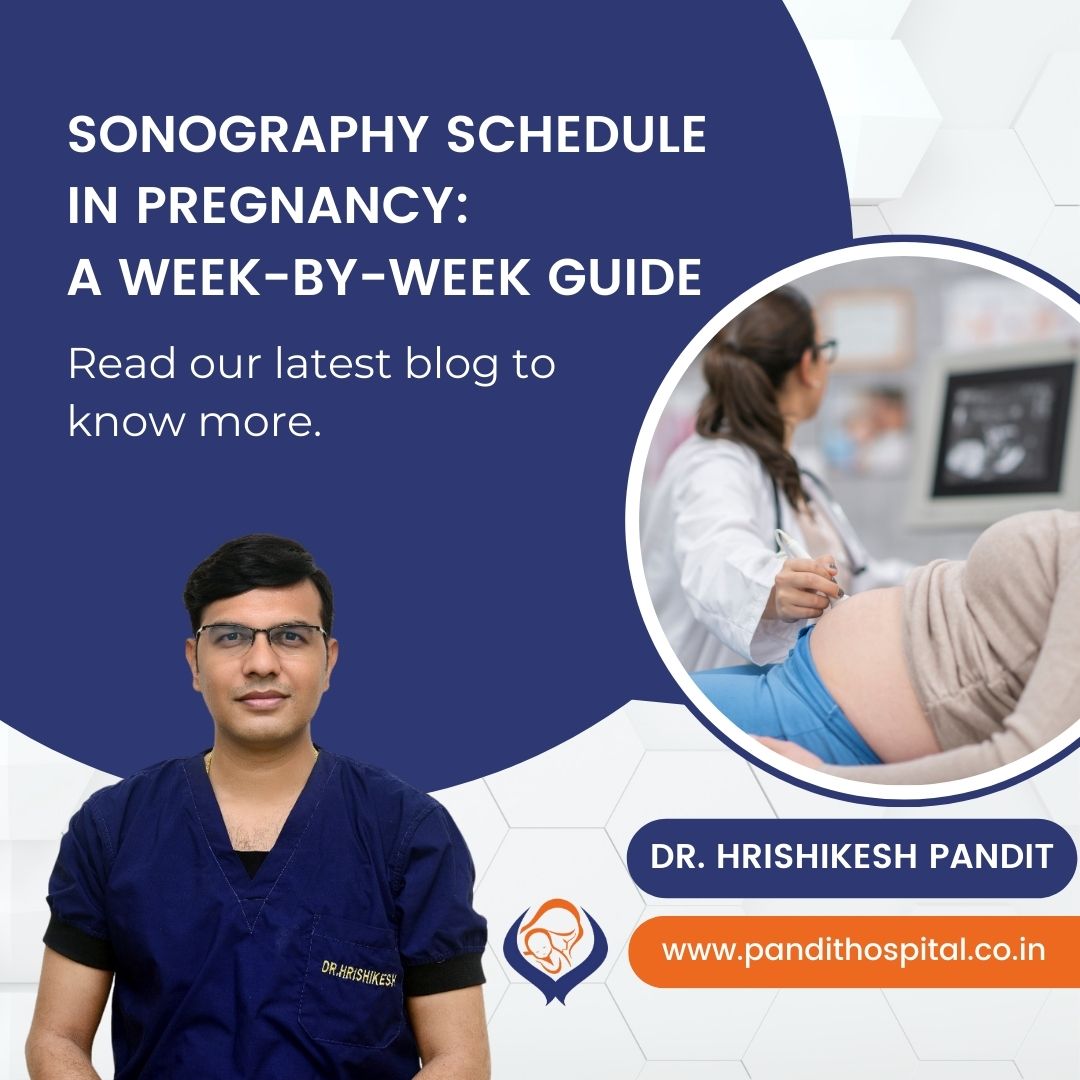In the field of gynecology, the name Dr. Hrishikesh Pandit stands out as a beacon of expertise, particularly in the field of laparoscopic surgeries. Today, we delve into the specifics of laparoscopic removal of solid ovarian tumors, shedding light on its intricacies, benefits, and the distinguished practitioner behind these groundbreaking procedures.
Ovarian tumors can arise from various factors, including genetic predisposition, hormonal imbalances, or reproductive history. Symptoms often include abdominal pain, bloating, changes in bowel habits, and pelvic discomfort. Early detection is crucial for effective treatment.
Diagnosis typically involves a combination of pelvic examinations, imaging studies (ultrasound, MRI, or CT scans), and blood tests measuring tumor markers. Dr. Hrishikesh Pandit employs a comprehensive approach to ensure accurate and timely diagnosis.
What sets laparoscopic surgery apart in the removal of solid ovarian tumors?
Laparoscopic surgery, or minimally invasive surgery, involves small incisions and the use of a tiny camera and specialized instruments. Dr. Hrishikesh Pandit excels in this technique, allowing for precise removal of ovarian tumors while minimizing trauma to surrounding tissues.
Why is the creation of an endo bag essential in laparoscopic tumor removal?
The endo bag is a pivotal component of laparoscopic surgery, serving as a secure containment device for the removed tumor. This prevents any potential spillage of tumor cells into the abdominal cavity, reducing the risk of complications and aiding in a more thorough extraction.
How does laparoscopic surgery prevent spillage during ovarian tumor removal?
Laparoscopic surgery ensures meticulous control over the surgical field. The endo bag encapsulates the tumor, and the surgeon can precisely cut and remove it without exposing the surrounding area to tumor cells. This approach minimizes the risk of tumor dissemination.
What are the benefits of laparoscopic surgery for ovarian tumors?
Laparoscopic surgery offers numerous advantages, including smaller incisions, reduced pain, quicker recovery times, and lower risk of infections. Dr. Hrishikesh Pandit’s proficiency in this technique enhances patient outcomes, providing a more comfortable and efficient experience.
Can all ovarian tumors be removed laparoscopically?
While many ovarian tumors are amenable to laparoscopic removal, the decision depends on factors such as tumor size, location, and the patient’s overall health. Dr. Hrishikesh Pandit evaluates each case individually to determine the most suitable approach.
How does Dr. Hrishikesh Pandit ensure patient safety and optimal outcomes?
Dr. Hrishikesh Pandit’s extensive experience and commitment to staying abreast of the latest advancements in laparoscopic surgery contribute to the safety and success of each procedure. Rigorous preoperative assessments and personalized care plans are integral to his practice.
Where can you get ovarian tumor treatment in Ahmednagar?
Dr. Hrishikesh Pandit of Pandit Hospital, Ahmednagar is the laparoscopic gynecologist in India where he provides comprehensive treatments for ovarian tumors and other reproductive organ cancer treatment as well.
Dr. Hrishikesh Pandit’s prowess as a laparoscopic gynecologist in Ahmednagar shines through in his meticulous approach to ovarian tumor removal. Through innovative techniques like the use of endo bags and a commitment to patient well-being, he continues to redefine standards in gynecological care, offering a beacon of hope for those seeking advanced, minimally invasive solutions.
At Pandit Hospital, you are in safe hands!
To consult Dr. Hrishikesh Pandit, Click Below,
Pandit Hospital – Best Maternity care center in Ahmednagar
LET’S SEE OUR INTRO VIDEO
At Pandit Hospital, we provide all the maternity services from antenatal to postnatal period under one roof
Let's Connect!!
0241-2441717 / 0241-2442344
info.pandithospital@gmail.com
About author:
Dr. Hrishikesh Pandit:
Dr. Hrishikesh Pandit is one of the best obstetrician and gynecologist in India. He is also a well-renowned Laparoscopic surgeon. He obtained his MS (Ob Gyn) degree from the prestigious Pravara Institute of Medical Sciences. He has also done fellowship and diploma courses in laparoscopic surgeries and cancer treatment from Tata Hospital and Keil University, Germany. His surgical cases, papers and videos has been chosen in many international forums of gynecology.
At Pandit Hospital, we are always working hard to provide its patients with the highest level of medical innovation and patient care. With the aim of delivering complete maternity & gynecological care under one roof with the help of all contemporary amenities and cutting-edge medical equipment. Dr. Hrishikesh Pandit has a vision to bring the best of facilities regarding laparoscopy surgeries in the city of Ahmednagar. He is the pioneer of 3D Laparoscopy technology is Ahmednagar.
Latest Articles
Dr. Hrishikesh Pandit is one of the best laparoscopy surgeons in India. His determination to bring 3D Laparoscopy technology to Ahmednagar has eventually helped so many patients. Read the latest articles by Dr. Hrishikesh Pandit on Gynecology, gastric issues, and health tips for mothers during pregnancy.
Dr. Hrishikesh Pandit answers common questions about Laparoscopic Radical Hysterectomy at Pandit Hospital’s 3D Laparoscopy Center.
Laparoscopic Cerclage is done for cervical insufficiency or early abortion history. Consult Dr. Hrishikesh Pandit to know more about it. Excellent results in High Risk Pregnancies. Watch video on YouTube.
At Pandit Hospital, Ahilyanagar, we provide advanced maternity care with state-of-the-art 3D laparoscopy and sonography services to ensure the safety of both mother and baby.
FAQ
You should consult a doctor during the first 6 to 8 weeks of your pregnancy, or when your period is 2 to 4 weeks late.
If your contractions are 5 minutes apart, lasting for 1 minute, for 1 hour or longer, it’s time to head to the hospital.
Doctors recommend an infertility evaluation if you have not gotten pregnant after 1 year of having regular sexual intercourse without using birth control. If you are older than 35, an evaluation is recommended after 6 months of trying.
Yes, You can. But most babies need 39 weeks to develop fully. Induced or planned delivery before that time—without a valid medical reason—is not in the best interest of the baby or the mother. After 39 weeks you can plan delivery.
Women who are 21 to 29 should have a Pap test alone every 3 years. HPV testing alone can be considered for women who are 25 to 29, but Pap tests are preferred. Women who are 30 to 65 have three options for testing. They can have a Pap test and an HPV test (co-testing) every 5 years. They can have a Pap test alone every 3 years. Or they can have HPV testing alone every 5 years.
Laparoscopic hysterectomy is a safe and suitable procedure for chosen patients. It affords patients advantages like less peri-operative morbidity, better life quality, shorter hospitalization time, and faster return to activity.
Schedule a doctor’s visit if you have: Greenish, yellowish, thick or cheesy vaginal discharge; Strong vaginal odor; Redness, itching, burning or irritation of your vagina or the area of skin that surrounds the vagina and urethra (vulva); Bleeding or spotting unrelated to your period.
Painless delivery can be achieved using a form of regional anesthesia that provides pain relief during natural labor. Epidural anesthesia is administered through an injection on the lower back of the mother. The drug takes about 10-15 minutes to take effect.
Even in severe cases of endometriosis, most can be treated with laparoscopic surgery. In laparoscopic surgery, your surgeon inserts a slender viewing instrument (laparoscope) through a small incision near your navel and inserts instruments to remove endometrial tissue through another small incision.
The HPV vaccine is recommended for routine vaccination at the age of 11 or 12 years. (Vaccination can be started at age 9.) It is also recommended that vaccination for everyone through age 26 years if not adequately vaccinated when younger. HPV vaccination is given as a series of either two or three doses, depending on age at initial vaccination.





